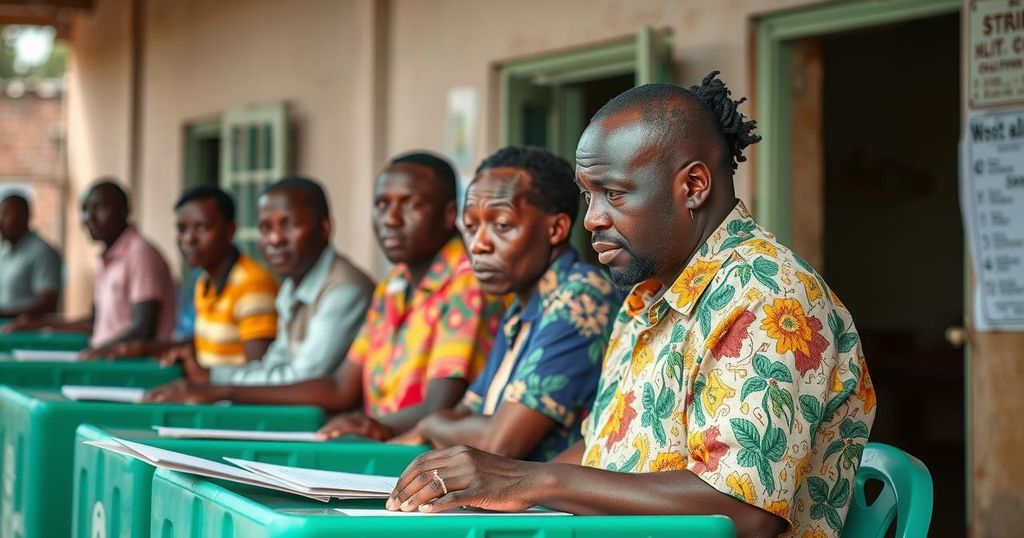On December 7, 2024, Ghanaians voted in crucial elections amid severe economic turmoil. Vice President Mahamudu Bawumia represented the ruling party, while former President John Mahama led the opposition. Polls suggest a tight race, highlighting widespread voter concern about the nation’s economic direction, with major issues including high inflation and illegal mining influencing the campaign.
On December 7, 2024, Ghanaians participated in pivotal presidential and parliamentary elections amid the worst economic crisis the nation has experienced in a generation. With 18.7 million registered voters, the elections are deemed a crucial examination of democracy in a region plagued by political instability and violence. Candidates, Vice President Mahamudu Bawumia from the ruling New Patriotic Party (NPP) and former President John Dramani Mahama representing the National Democratic Congress (NDC), are appealing to the electorate amidst widespread dissatisfaction with the current economic situation. Although 12 candidates contested for the presidency, polls suggest a two-horse race, with Mahama slightly favored to win.
Ghana once enjoyed a reputation for democratic stability, yet it is currently grappling with exceptionally high inflation and rampant unemployment. An opinion poll indicated that 82% of the populace believes the country is heading in the wrong direction. The recent economic downturn has resulted from significant fiscal challenges, including a default on foreign debt and rising costs of essential goods. While the NPP and the NDC present similar economic policies, Bawumia vows to continue the existing administration’s efforts, whereas Mahama proposes a broad overhaul, declaring, “We need to reset our democracy, governance, economy… and all that we hold dear as a people.”
The excitement surrounding the election is tempered by deep concerns about the nation’s economic future, particularly with the illegal gold mining (known as galamsey) issue looming large. As Ghanaians cast their votes amidst this backdrop, their choice will substantially influence the country’s path forward during these tumultuous times.
Polls are open from 7 a.m. to 5 p.m. GMT, with preliminary results anticipated later that evening, followed by official announcements on Tuesday. The elections will also determine all 276 members of parliament, crucial for shaping future governance in Ghana.
Ghana has historically been recognized as a bastion of democracy in West Africa, distinguished by its commitment to peaceful electoral processes and political stability. Recently, however, the country has faced profound challenges, with a severe economic crisis significantly affecting daily life. Inflation rates peaked at 54%, and unemployment remains high, raising concerns among citizens about their economic future. The upcoming elections represent an opportunity for change, amid a palpable sense of urgency for effective governance and sustainable economic solutions.
The general elections in Ghana on December 7, 2024, represent not only a crucial democratic exercise but also a decisive moment for the country’s economic recovery. With the economy in dire straits, the electorate faces a pivotal choice between two candidates with starkly different visions for the future. While Mahama touts a strategy for comprehensive resets in governance and economic management, Bawumia seeks to continue the existing policies. Regardless of the outcome, the elections underscore pressing vulnerabilities in Ghana’s political and economic landscape.
Original Source: apnews.com






